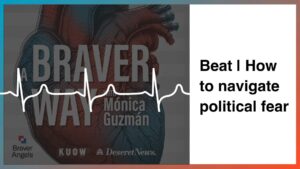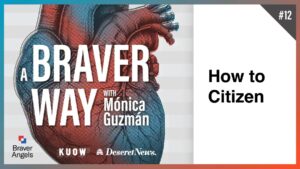On the afternoon of December 14, 2012, my 6-year-old son sat in his kindergarten classroom in the small southern town where we live. That day, a young shooter armed with a semi-automatic rifle fatally shot his mother at home and then drove to Sandy Hook Elementary School in Connecticut and killed a total of 26 people, 20 of them children under 10.
That day shocked our nation with its horror, perpetrated against innocent very young children. If, like me, you had a child that same age sitting in their elementary school classrooms, you likely felt the horror literally, in your body. You realized how easily it could have been your child, in their school, in your town where you drop your kid off daily on weekdays, never thinking it could be a place of mortal danger.
Six years after Sandy Hook, in 2018, a troubled 14-year old boy who had been expelled from his high school drove to an elementary school in Townville, South Carolina, just outside the town where my family lives, and armed with an AR-15, he gunned down a 6-year-old boy on the school’s playground. Shortly beforehand, he murdered his father. This event shook our community to its core as tributes were made, funds were raised for the family and symbols were everywhere, dedicated to this young boy who lost his life. Days later, he was buried wearing his beloved batman costume.
Events like these shake our sense of safety that we expect in our homes, in our communities going about our daily lives inhabiting the places we normally go. Sandy Hook and the events of that day stand in stark relief in our memories as they left us reeling in ways we haven’t since. Sadly, we’ve become largely numb and immune as we’ve witnessed shooting after shooting, in schools, in churches and synagogues, in stores and in workplaces. That is, pretty much anywhere humans congregate as they go about their daily lives has become a potential place of danger, to say nothing of the communities, often minority ones, that live with the threat of daily gun violence.
In the months and years since 2012, we’ve seen many efforts to address gun violence at the state and federal levels, some successful, some not but none that’s provided a universal fix to our seemingly intractable national scourge, a problem that doesn’t seem to plague other nations.
Shortly after the shooting in a nearby town and the bitterly divisive 2016 election, I joined Better (now Braver) Angels, driven by a need to understand how we had become so politically polarized, how our fellow Americans could see events in our communities and in our country in such divergent ways that were hard to understand and as we identified as blue or red, liberal or conservative. I also deeply felt the frustration with our seeming inability to solve some of our most intractable problems, from immigration to gun violence. Sometimes we’d seem close to agreeing on solutions to big problems only to be frustrated yet again when our elected leaders, existing in a highly charged partisan environment, couldn’t make it happen. I kept thinking there had to be a better way.
In the years since, Braver Angels has inspired me to read widely across the political spectrum, reading and listening to a myriad of voices, liberal, conservative and in-between and to consider divergent views. I’ve attended BA workshops, listened deeply to BA and to other liberal, conservative and libertarian podcast interviews. They’ve made me realize that no one ‘side’ has the lock on morality or on good ideas. They’ve made me realize that few problems lend themselves to simplistic solutions and that includes solving gun violence.
In the years since, I have realized that the path to a solution to our particular problem of gun violence will look like all of us working together, listening deeply to each other, finding the areas where we can agree and working from there. Complex problems often require multi-pronged solutions, not one solution imposed by one group on another. For gun violence, this is likely to look like us agreeing on some restrictions on who should have access to guns and when there are some people who shouldn’t. It likely looks like figuring out scalable interventions in conflict de-escalation. It likely looks like understanding how our culture at times promotes solving our problems through violence. It likely looks like understanding and addressing why Americans and maybe young men in particular are feeling a sense of loneliness and missing identity that sometimes translates into violence.
For me, Braver Angels gives me hope that we can work toward finding these solutions. In this season of Christmas and Hannukah, we can feel hope. In 2023, we can get to work.
Monica L. Rockwell
Braver Angels South Carolina State Coordinator




